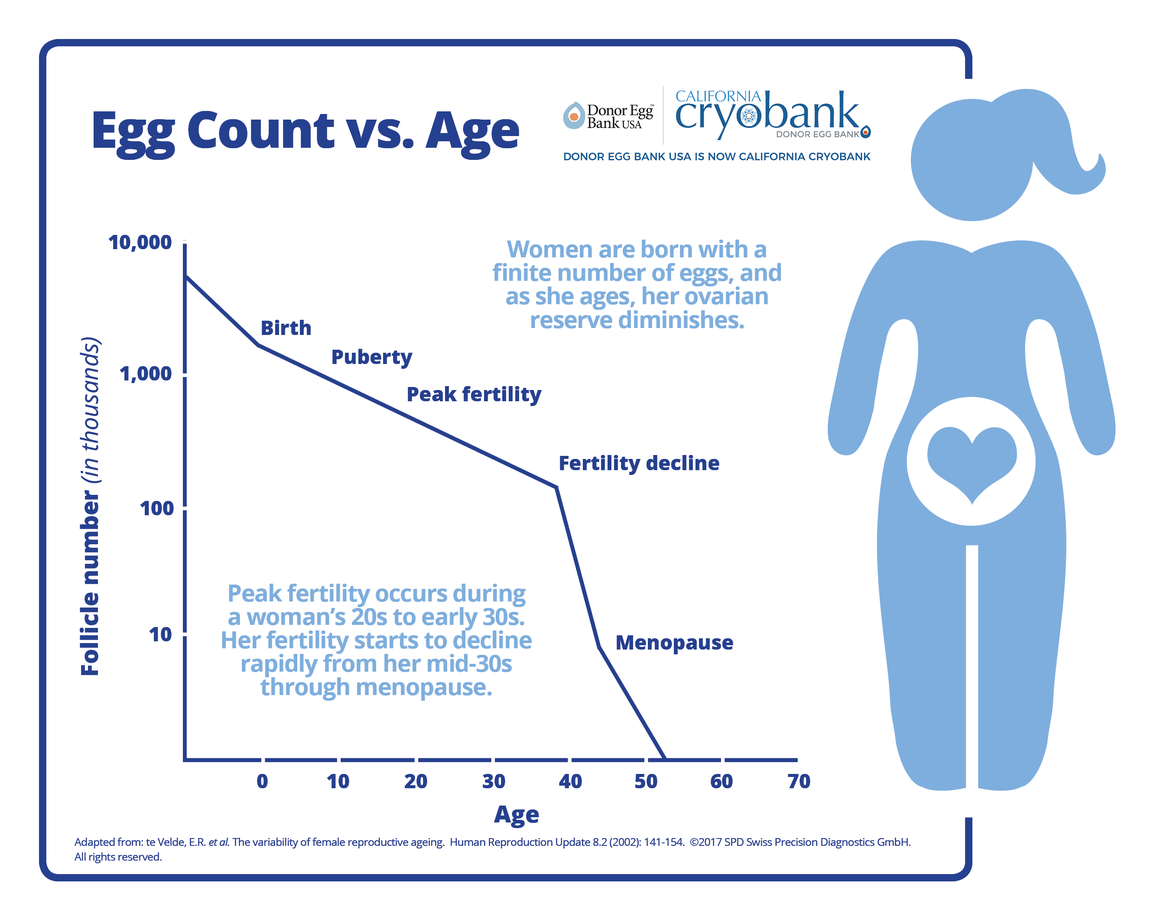How Age Affects Ovarian Reserve (...and what you can do about it!)

Thirty may feel like the new 20 in many aspects, but time and biology don’t always go hand in hand.
As we see a significant shift in the age of first-time mothers, it’s important to understand the effect age can have on your ovarian reserve.
Women are Born with a Finite Number of Eggs
Unlike men who continue to generate sperm throughout their lives, women are born with a certain number of eggs – approximately two million. This number quickly begins to diminish, and by the time those girls hit puberty, approximately 300,000 are left.

As young women are taught in health class, each month after ovulation begins a single egg (occasionally more) will be released from one of their two ovaries.
However, it should be noted the overall number of available eggs still decreases quite rapidly with an average of 1,000 eggs dying off naturally every month.
This is one of the most understood ways age negatively affects a woman’s ability to reproduce. The longer you wait to conceive, the fewer eggs left in your ovarian reserve.
It’s not just a numbers game, either. When you’re edging towards your thirties, there are other egg-related issues to contend with.
What’s the Most Common Reason for Female Infertility?
Doctors have discovered most cases of female infertility are caused by a lack of ovulation.
When a woman is either not ovulating on a regular basis or ovulating inconsistently, it’s hard to track when she’s capable of conceiving during any given month.
There are several common reasons why ovulation problems can occur:
· Polycystic ovarian syndrome (PCOS)
· Uterine fibroids
· Blocked fallopian tubes
If a woman isn’t carefully tracking her cycles, she may not even realize there are issues. One easy way to pinpoint a problem with ovulation is to look at whether her periods are absent or irregular.
Does Egg Quality Lessen with Time?
Sadly, the short answer is yes.
Beyond the concern over available eggs and troubles with ovulation, egg quality decreases over time.
From an external standpoint, it’s easy to see the effects age has on our body. You may notice fine lines, graying hair, or drying skin.
Just as the motility and overall performance of sperm declines as men get older, a woman’s eggs are also affected by time - even though they may not realize it.
Not only do older women have to worry about chromosomal defects upon conception, but their general egg quality weakens, making them less viable for pregnancy. After all, a woman’s eggs are the same biological age as the woman herself. It only makes sense they would eventually begin to deteriorate.
What Can I Do About It?
Compared to the dark ages of yesteryear, it’s refreshing to sit back and realize how many options are available for women today.
However, the number of women who now face infertility due to poor egg quality and/or presence is increasing.
Despite some preventative measures, there isn’t always an easy answer for certain women. It’s heartbreaking to learn many of them will be told their eggs simply aren’t viable for pregnancy and it’s impossible for them to have a genetic child of their own.
Many couples choose to adopt, which is a great way to give a loving home to a child.
But, there is another option that allows a woman to not only carry a pregnancy, but also to control the genetic source of the baby.
Have You Considered Donor Egg IVF?
Thankfully, in situations like these, donor egg IVF is available.
Altruism at its finest, women who donate their eggs such a selfless gift. Each donor goes through a rigorous screening process, general health examinations, and a period of prescribed medications and monitoring. A donation cycle concludes with a simple egg collection procedure, which generally occurs at the fertility clinic’s in-house surgical center.
Fresh donor egg IVF requires that the egg donor and recipient time their medications together, so the timing of transfer is perfectly aligned with each other’s menstrual cycles.
Alternatively, frozen donor egg IVF involves vitrification (or freezing) of the donor egg for storage until the recipient is ready for transfer. This option allows a more flexible treatment schedule since the eggs are ready for your use at any time.
Age is Nothing but a Number – Remember There Are Options
When you take the time to understand the effects age can have on your ovarian reserve, the facts can seem overwhelming.
Be encouraged! There are more options now more than ever available to help you have the family you’ve always dreamed of.
Categories
Latest Posts
- Pride, Parenthood and Possibility: A Guide for Gay Dads Using Frozen Donor Egg
- Victoria’s Story: Choosing Donor Egg and Beyond
- Heartbreak, jealousy, and then one ‘golden egg’. How actress Camille Guaty finally became a mom with donor egg
- Empowering Your Family Dreams: Accessing Fertility Coverage Made Simple
- Donor Egg Bank USA’s Partner Summit 2024
- Planning, Painting and Picking: A Donor Egg Bank USA Employee’s Journey to Motherhood
- Real Stories: A Path to Parenthood Through Donor Eggs
- Mental Health and Infertility 101: What You Should Know
- Mark Yourself as a Resource During National Infertility Week®
- 5 Reasons It’s Not Your Fault You’re Not Pregnant
Comments
Share Your Thoughts